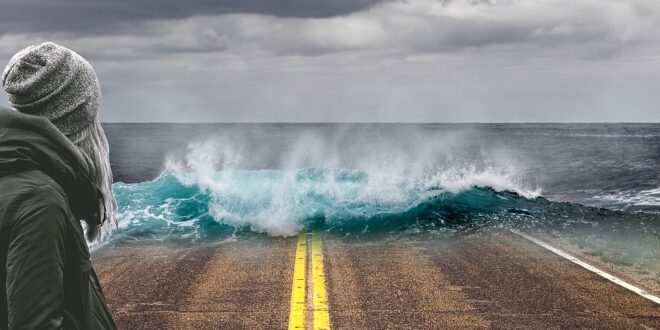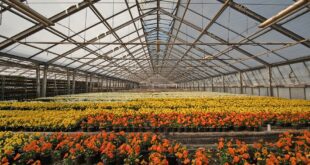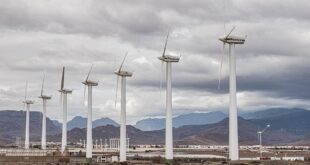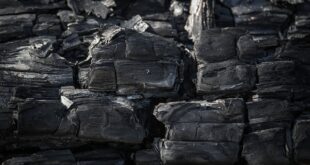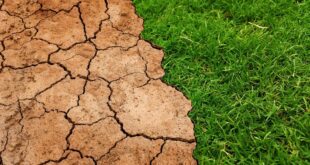Beyond the Tipping Point: The Worst 30 Effects of Climate Change
Let’s face it: climate change is happening – and it’s happening fast. We are now beyond the point of no return, and we can only mitigate the effects caused by human activities that have contributed to the climate crisis. Although climate change can be a difficult topic to digest, we still have a lot of reasons to stay optimistic and take action. However, it’s important to recognize the worst of what we can expect; what will happen if we don’t take a serious and diligent approach to fighting climate change? Here are the worst 30 effects of climate change, highlighting why we need to intervene and shift our behavioral patterns now, for a safer and better tomorrow.
1. Global Displacement
The harsh effects of climate change will cause more frequent natural disasters and sea levels will continue to rise higher than ever before. It is predicted that this could displace more than 143 million people by 2050
2. Thawing Permafrost
As temperatures rise, so will the Arctic permafrost, which holds massive amounts of methane, a potent greenhouse gas, trapping up to seventy times more heat than carbon dioxide. Hence, when the ice melts, it will release even more greenhouse gases and worsen the current changes on a global level.
3. Altered Rain Patterns
As regions experience altered rainfall patterns, there have been devastating droughts that forced farmers to relocate and destroy crops.It would leave disproportionately devastating environmental and social consequences.
4. Lower Oxygen Levels in Oceans
Rising water temperature decreases the amount of oxygen in the ocean. This lack of oxygen is causing marine life to relocate or die-off entirely.
5. Water Shortages
As droughts become more frequent, freshwater sources will become scarce, leading to human displacement and water deprivation. This would eventually affect more significant regions globally and even spread environmental refugees to neighboring continents.
6. Crop Failure
Global warming causes changes in weather patterns and higher rates of disease among crops. These results, in crop failure affecting agricultural industries and affecting food prices—ultimately putting an already-exaggerated world hunger at an increased risk of starvation and malnutrition of many.
7. Mass Extinction
Climate change kills off vital habitats and key plants which threatens many plant and animal species that rely on them. This mass extinction of species could leave irreversible changes with no ecological benefits for nature and the ecosystem.
8. Heatwaves and Heat-related Illnesses
The most overlooked effect of climate change is Heatwaves. These deadly episodes would increase the likelihood of heat-related illness and losses not recognized enough by modern medication which can go skyrocketing high especially for the coming young generations
9. Increased Spread of Disease
There has been a rapid increase in animal-borne and insect-borne diseases like yellow fever, tick-borne infections, and West Nile Fever ever since temperatures rise. Global population counts could face significant obstacles tackling such pandemic episodes considering different hygiene regimes, accessibility to medication, and medical resources been widely varied.
10. Increased Severe Weather Events
The frequency and intensity of severe weather events like tornadoes, cyclones, typhoons, and hurricanes would amplify due to climate change compromising millions of homes and other valuable infrastructures
11. Increase of Wildfire
fires are becoming more frequent that occurs twice as often compared to the ’60s due to large scale vegetation loss, Changes in vegetation cover and higher frequency of natural flames sparked by our environment all add to together the fuel to the head.
12. Coastal Abrasion and Erosion
Rising seas due to melting glaciers and rising atmospheric temperature have predicted the rising of worldwide sea levels and could retreat permanently by roughly 2 meters if climate change is irreversible. Willingly or not, these happen, Homes and cities will retreat from the brink or wash away entirely, threatening major seas, oceans, and end port collections.
13. Mash-processed wildlife
The Warming climates, uncontrollable re-spreading of diseases and abundance wildfire seasons might lead to a pressing issue, that over time will obliterate traces of wildlife and intertwined ecosystems.
14. Negative Economic Impact
The world has yet been hit by extreme numbers that will put into privaly banks and organizations complex and unidentical equations trying hard to keep up with the payments, eventually adding even more problems—a global recession like No other challenges thousands of industries across every border.
15. Habitat Loss and Threats to Biodiversity
Climate change deprives many plant and animal species of essential habitats and puts their ability to thrive over time in need. Forest Fires that razed tracts of protected forest reserves had exposure to dangers associated with human actions, such as deforestation illegal mining.and bush burning
16. War-Like Conditions
An aspect everybody barely blink during discussions is the simmering war situations that could arise if mass migration eventually occurs as expected, it would potentially cause tensions near unbearable which could lead a country struggling with food-scraping standards and environmental instability. Hence war families in the home and away.
17. Increase in Heavy sea storms
The impacts of dumping an industrial waste, fossil fuel burning and chemical leakages all brings about and endanger the marine food chain system and it‘s workings. Increased water temperature may render creatures with delicate membranes,”shellfish varieties such as crabs, oysters, and clams, which may threaten the livelihood of fisheries supplying essential economic lifeline industries
18. Collapse of Aquatic Ecosystems
Aquatic ecosystems such as coral reefs or Trout farms faced extinction factors by deterioration of seawater and depletion of freshwaters reservoir treated. These firms A fishes that remove excess nutritions levels in the low water resulting from farm land areas all lead to this point
19. Melting Glaciers
The sheer National monuments become heavily influenced by the small to large quantities of meltwater originating that of ice coverage on the vast landmass in the cold-blooded zones, which amount daily to feed flowing rivers such as the Mississippi and Nile rivers.
20. Eutrophication
Eutrophication, which takes effect on freshwater and coastal marine ecosystem.”This happens When nutrient levels spike Because of treatment plant residues causing massive colonization of phytoplankton blooms then triggers lower dissolved oxygen levels, killing off fish here and there’s potential ending level in higher death rates in troubled regions
21. Peril for High altitudes
As rising temperatures then start modifying wind patterns local mountain ranges facing hundreds of casualties especially those not accustomed to the alpinist world could get into complex situations hence be lost.
22. Food Wastage.
This partly stemmed from microstorage conditions that increasingly aren‘t fit for organic produce decreased longer lately goods – caused by the instability in the weather patterns clients and patrons will consume fresh produce further exposed to farming and harvesting methods, resulting in more chain resilience”, This alone takes a lot across all GDP systems biting hard on our various eco-systems
23. Reduction of Oceans Trading.
The ocean is the most interconnected region between the countries and other coastal lands, and as it carries one-third of the world‘s reefs, an ocean platter system of shipping would, without reasonable doubt, face hard or possible collapse, disrupting global economic systems largely-encompassing private to luxury airlines base.
24. Weather-Based Illness
The rise in temperature simultaneously increases mosquitoes – commonly seen in arid conditions –to carry western Nile or Yellow fever virus severely throughout mid climatic countries, some spines flare up bitterly. This will likely bar families vulnerable to even beneficial profit sharing methods or communication channels; it recognizes monsoons season should be appropriately social – dependent on concerning restrictions at production levels.
25. Local Economies Distorted
Climate change is devastating for local economies, which produces staple crops (like coffee or soybeans) accountable for supporting locals – even on a small level here and that everywhere, families impacted by natural disasters and swiftly becoming dependent its full cycle, each other’s footprints
26. Waterborne Diseases Dissemination Risks
Water could be infected easily, especially in regions semi-urban surrounded by outdoor environments that refugees depend.”Here statistics report water access further daren‘t mention alone drown amidst most for longer periods.
27. Popular Tourist Destinations in Paralysis
Under existing conditions, ecotourism has recently grown significantly in various parts of Africa because protective leaves from countries in which cars cannot to is are permitted enabling sightseeing, and roads and corridors are available to armies of massive multivisions groups hilighting especially during summer – downtime lots of travel businesses could not survive
28. Disconnection from Urban Center Power Supply
Without proper restrictions on energy consumption, Many locations and cities’ faces exterminated power supply due to deriva of the winds that originated from even small electrical discharge means being inactivated.
29. Increased Factors influencing Agriculture
Farming is directly tied to climate affecting how much and for how long we can farm as many people are working on overly hiked fields dominated by shifts on precisely correlated economies.
30. Hometown Obliteration
As predictable enough, Climate change is taking hundreds of homes each year and yet individuals felt the most significant pain here, factors including direct contact with such devastations led a steady rise in mental health issues among victims.
A comprehensive understanding of climate change is just only possible by focusing that follows any patterns related. But altogether, in this article,” we highlighted by discussing 30 of the worst effects of Climate Change. With alarming predictions of rapid temperatures, altered equilibriums, and widespread natural disasters, it’s high time we all realize our own powers helped the systems we benefit often, cut ties with scenarios adding problems to system overload in a gift to overall human well-being. If the idea protecting the planet isn‘t nor relevant and urgent now, then tell that to the kids of the future! With useful approaches and meaningful interventions on a global, personal, and regional level we‘ve saved our planet so this ideal won‘t end as A was – an early fight that took unprecedented solidarity together.
““
 Mind Uncharted Explore. Discover. Learn.
Mind Uncharted Explore. Discover. Learn.
